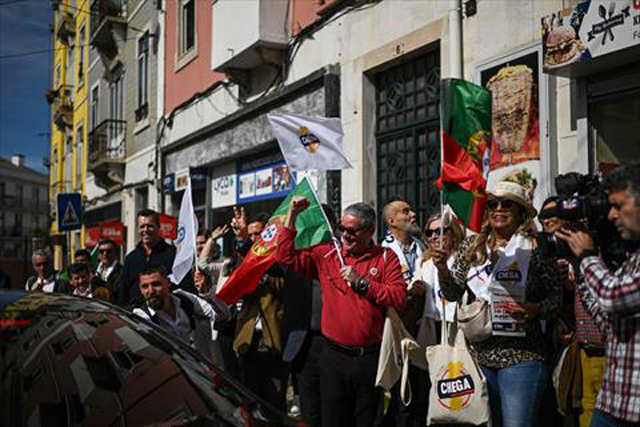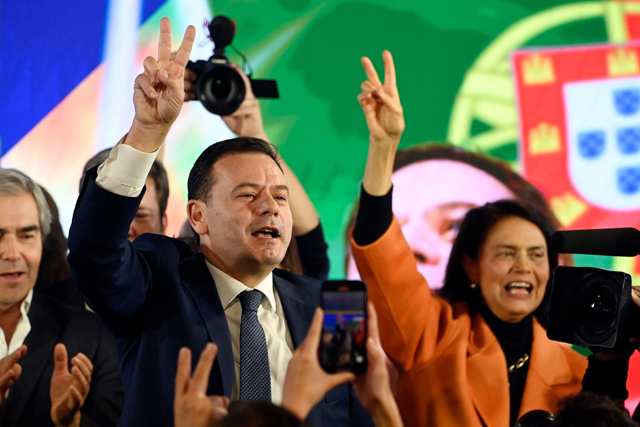You are here
Portugal awaits new PM as final results roll in
By AFP - Mar 20,2024 - Last updated at Mar 20,2024
LISBON — Portugal was due to name its new prime minister on Wednesday once the final results of its March 10 election are announced after the counting of overseas ballots.
After a narrow win, Luis Montenegro, the leader of the centre-right Democratic Alliance (AD), is expected to be appointed as Portugal’s next prime minister, succeeding socialist Antonio Costa.
President Marcelo Rebelo de Sousa received Montenegro at the presidential palace on Wednesday evening, before the overseas results were completed.
Montenegro said that he told Sousa that his party was ready to take charge of the government and, “as a consequence of that, to be named prime minister”.
The meeting was the final step of consultations Sousa was due to hold with the parties represented in parliament before inviting the election winner to form the next government.
Near-complete official results showed the AD won 29.5 per cent of the vote and at least 79 seats, far short of a majority in the 230-seat parliament.
The incumbent Socialist Party (PS), in power for eight years, came in second place, winning at least 77 seats.
Even with the backing of the tiny business-friendly Liberal Initiative (IL) Party, the AD would still need the support of anti-immigration party Chega to reach a majority of 116 seats in the assembly.
However, Montenegro has ruled out forming a coalition with Chega, which took 48 seats, insisting that he intends to form a minority government.
Chega’s leader Andre Ventura warned of political instability if the AD continued to reject a coalition.
“We are continuing to put in all our efforts... to reach an agreement that will ensure the country’s stability,” Ventura said on Monday.
“If there is no government agreement, the AD will be responsible for the instability that will result.”
A minority administration will “not necessarily” be unstable because “none of the actors has an interest in triggering a crisis”, said Antonio Costa Pinto, an analyst from the University of Lisbon’s Institute of Social Sciences.
The election results marked another advance for the far right in Europe, where populist and nationalist parties are either already governing — often in coalitions — in countries such as Italy, Hungary and Slovakia, or are steadily gaining as in France and Germany.
Chega, which means “Enough”, calls for stricter controls over immigration, tougher measures to fight corruption and chemical castration for some sex offenders.
Related Articles
LISBON — Voters in Portugal went to the polls Sunday in an early election that could see the country join a shift to the right across Europe
LISBON — Portugal’s official election campaign begins Sunday, with the March 10 legislative vote likely to see a breakthrough by populist pa
LISBON — Portugal looked set on Monday for a period of political uncertainty after no party won a majority in the election at the weekend an

















